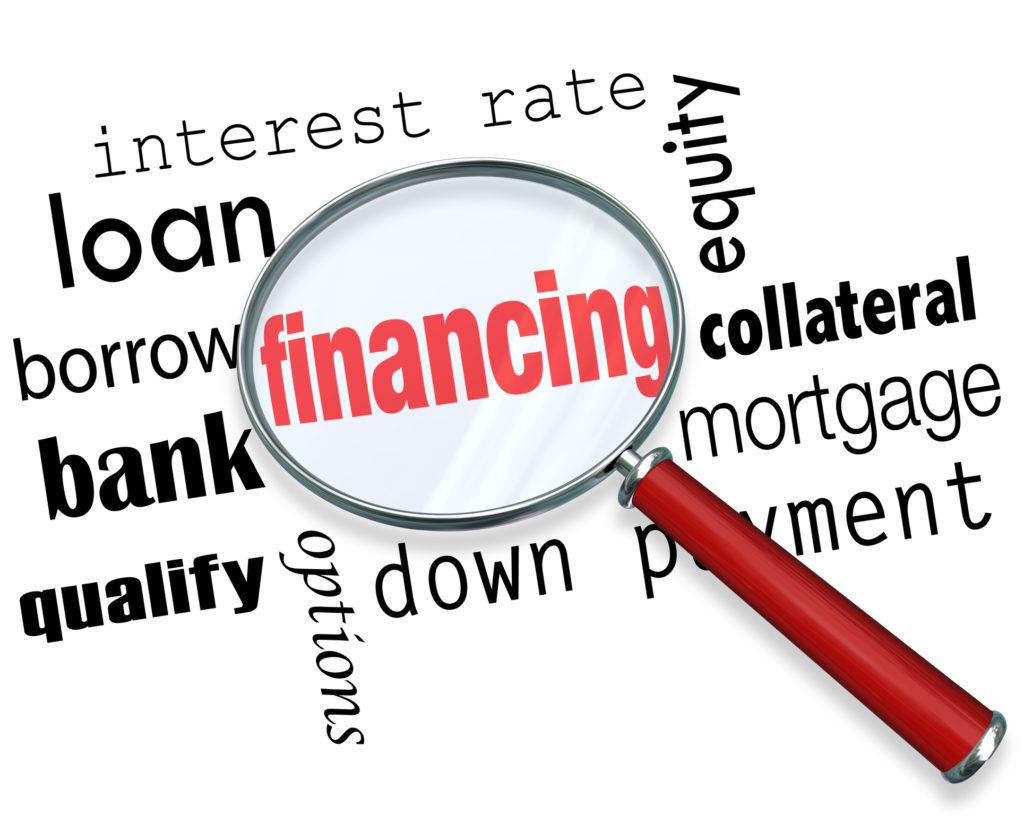Building Wealth Through Real Estate Investing in Canada
While you might think investing in real estate in Canada is an option only for the wealthy, that’s not necessarily true. You don’t need to be a millionaire to start building wealth through real estate. In fact, with the right knowledge, planning, and a bit of tenacity, you can leverage the power of real estate to create a sustainable wealth-building strategy.
Now, you might wonder, ‘How can I get started if I don’t know the first thing about real estate investing?’ Don’t worry, we’re here to guide you, step by step, through the process. And, there’s one key fact that might surprise you: Canada’s real estate market offers unique opportunities that can make your venture into property investment more rewarding than you ever imagined.
Intrigued? Stick around, there’s so much more to uncover.
Understanding the Canadian Real Estate Market
To truly excel in Canadian real estate investing, you need to grasp the intricacies of the Canadian real estate market. It’s not just about buying low and selling high. You’ve got to delve deeper, understanding the market trends that shape the landscape. Are home prices on the rise? Is there an influx of new condos saturating the market? These trends can greatly influence your investment decisions.
Next, familiarize yourself with the investment laws and housing policies. You can’t just wing it; you’ve got to know what you’re allowed to do, and what could land you in hot water.
Additionally, don’t forget about property taxes. They might seem like a minor detail, but they can greatly impact your bottom line.
Benefits of Real Estate Investing
Diving into real estate investing offers a wealth of benefits that you shouldn’t overlook. Key benefits include tax advantages, rental income, investment diversification, equity building, and an inflation hedge.
Let’s break it down:
| Benefit | Explanation | Impact |
|---|---|---|
| Tax Advantages | Real estate offers numerous tax breaks. You can deduct property taxes, mortgage interest, and operating expenses from your income. | This reduces your taxable income, leading to significant tax savings. |
| Rental Income | Owning rental properties provides a steady stream of income. This can supplement your regular income or even become your primary source. | You’ll have a steady income, providing financial stability. |
| Investment Diversification | Real estate adds another asset class to your portfolio, spreading risk. | This can provide stability during volatile market conditions. |
| Equity Building | As you pay down your mortgage, you build equity in your property. | Over time, your net worth increases, enhancing your financial health. |
Additionally, real estate acts as an inflation hedge. When inflation rises, so too can rent and property values, protecting your purchasing power. With these benefits, it’s clear that real estate investing isn’t just a strategy—it’s a powerful tool for wealth building.
Choosing the Right Property
When it comes to real estate investing, picking the right property can make or break your success. It’s not just about what looks good on the outside. You need to delve deeper.
Firstly, you need to conduct a thorough location analysis. Don’t just fall for a property because it’s in a trendy neighborhood or close to work. You need to consider factors like proximity to amenities, public transport, and the overall safety of the area.
Secondly, carry out market research. This is where you look at the trends in property prices, rental rates, and vacancy rates in your chosen location. It’ll help you predict the potential return on investment.
Next, you must do a property evaluation. Here, you’re checking the condition of the property, any repairs needed, and the cost of maintenance. It’ll help you avoid any hidden costs that could eat into your profits.
Then, you need to align the property with your investment goals. Are you looking for a quick flip or a long-term rental income?
Lastly, don’t forget the legal considerations. Make sure you understand the laws regarding property ownership, tenants’ rights, and zoning regulations. It’ll save you from any nasty surprises down the line.
Financing Your Investment Property
Now that you’ve zeroed in on the right property, it’s time to tackle the crucial part – figuring out how to finance your real estate investment. Your financing options are tied to several factors, including credit scores, interest rates, loan types, and down payments.
Credit scores play a significant role in obtaining financing. Lenders examine your credit history to assess your reliability. A high credit score can unlock better interest rates and loan options. If your score isn’t stellar, don’t despair. You can still secure a loan, but be prepared for higher interest rates.
Speaking of interest rates, they’re a critical factor in any loan. Lower rates mean lower monthly payments, so it pays to shop around for the best deal.
Loan types also matter. A fixed-rate loan offers stability with a constant interest rate, while an adjustable-rate loan might start lower but can increase over time.
Lastly, consider your down payment. The more you can put down, the less you’ll need to borrow. Plus, a larger down payment often leads to more favorable loan terms.
In short, understanding your financing options is a vital step in your real estate investing journey.
Navigating Canada’s Mortgage Rules
Understanding Canada’s mortgage rules is your next challenge, and it’s one that can significantly impact your real estate investment strategy. These rules, or mortgage regulations, dictate how much you can borrow, the interest rates you’ll face, and the down payment strategies you can use.
Your credit score’s importance cannot be overstated. It influences the interest rates you’re offered, and a high score can unlock favourable terms. Mortgage insurance is mandatory for down payments less than 20%, providing a safety net for lenders.
Interest rate impacts your monthly payments and overall loan cost. Opt for a fixed rate for predictability or a variable rate for potential savings.
Consider the following essential components:
| Component | Description |
|---|---|
| Mortgage Regulations | Governing rules for borrowing |
| Credit Score Importance | Directly impacts interest rates |
| Down Payment Strategies | Affects your loan amount and mortgage insurance |
| Mortgage Insurance | Required for down payments less than 20% |
| Interest Rate Impacts | Influences monthly payments and overall loan cost |
Navigating these rules can be complex, but understanding them will put you on the path towards successful real estate investing in Canada.
Property Management Essentials
In the realm of real estate investing, mastering the essentials of property management can significantly boost your success. It’s a game where Tenant Screening, Lease Agreements, Maintenance Protocols, Rent Collection, and Eviction Policies become your top tools.
Tenant Screening is your first line of defense. It’s not just about filling vacancies; it’s about finding responsible tenants who’ll respect your property and pay rent on time. You must be thorough, checking references and conducting credit checks.
Next, Lease Agreements. They’re your safety net, outlining the rights and responsibilities of both parties. You’ll want to ensure they’re legally sound and comprehensive.
Maintenance Protocols can’t be ignored. Regular upkeep and timely repairs not only keep your tenants happy but also preserve your property’s value. It’s crucial to have a solid system in place.
Rent Collection might seem straightforward, but it’s worth setting clear rules. You’ll want to establish a consistent method, due date, and late fee policy.
Risks and Mitigation Strategies
While diving into real estate investing, you’ll inevitably face certain risks, but with the right strategies, you can effectively mitigate them. Market volatility is one such risk. It’s the rate at which the price of an asset increases or decreases for a set of returns. While you can’t control the market, understanding it helps you make informed decisions.
Investment diversification is a powerful strategy for managing this risk. By spreading your investments across various properties, you’re less likely to suffer a significant loss if one investment underperforms.
Risk assessment is another crucial step. It helps you identify potential challenges and design strategies to overcome them. Consider the legal implications of your investment decisions. Familiarize yourself with zoning laws, building codes, and lease agreements to avoid legal complications down the line.
Don’t forget tax considerations. Understanding the tax implications of your investments can save you a significant amount of money. For instance, rental income is taxable, but certain expenses like mortgage interest, property taxes, and maintenance costs are tax-deductible.
Case Studies: Successful Real Estate Investments
Now that you’ve got a handle on risk management, let’s explore some real-world examples of successful real estate investments in Canada. These case studies will provide a clear perspective on investor profiles, market trends, investment returns, diversification strategy, and exit planning.
| Investor Profiles | Investment Strategy | Investment Returns |
|---|---|---|
| John, a retiree | Diversified his portfolio with properties in urban and suburban areas, following market trends | Achieved steady income, exceeding his initial projections |
| Sarah, a young professional | Invested in a condo in a gentrifying neighborhood | Experienced significant capital appreciation |
| The Thompsons, a family business | Bought, renovated, and sold houses, focusing on exit planning | Secured high returns in a relatively short time |
| David, a high-risk taker | Invested in commercial real estate during a market downturn | Generated high returns once the market recovered |
As you can see, each investor’s profile played a crucial role in shaping their investment strategy, whether it was John’s diversification strategy or David betting on market trends. And in every case, a well-planned exit strategy ensured impressive investment returns.
Frequently Asked Questions
What Are the Tax Implications of Real Estate Investing in Canada?
In Canada, tax implications of real estate investing include capital gains tax, rental income taxation, and potential tax deductions. Understanding tax planning strategies and real estate tax laws is crucial for your profitability.
Are There Any Special Considerations for Non-Canadian Citizens Interested in Real Estate Investments in Canada?
Absolutely! As a non-Canadian, you’re stepping into a goldmine. Canada’s property laws, investment financing and market trends are alluring. Both residential and commercial sectors offer unique benefits. Foreign investors enjoy numerous advantages. Do your research!
How Does the Real Estate Market in Canada Differ From the US or UK Real Estate Markets?
Canada’s real estate market differs from the US and UK due to unique market comparisons, investment trends, and Canadian regulations. Economic influence and property types also vary, shaping your investment strategy differently.
What Are Some Recommended Resources for Further Learning About Real Estate Investing in Canada?
Diving into the world of real estate? You’ll need solid resources. Consider books, websites, and courses focusing on investing strategies, property analysis, financing options, legal considerations, and market trends unique to Canada.
How Can I Network With Other Real Estate Investors in Canada?
To network with other real estate investors in Canada, you can attend investor meetups, join online forums, enroll in mentorship programs, participate in investment seminars, and engage with social media groups.


